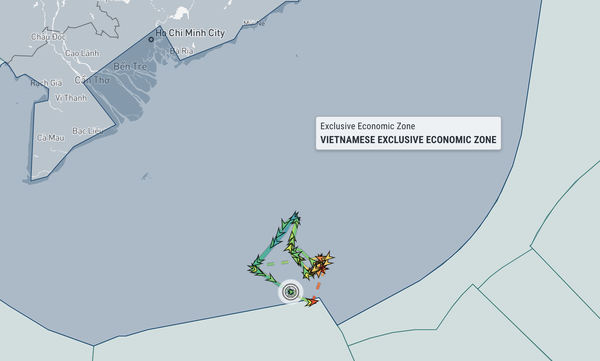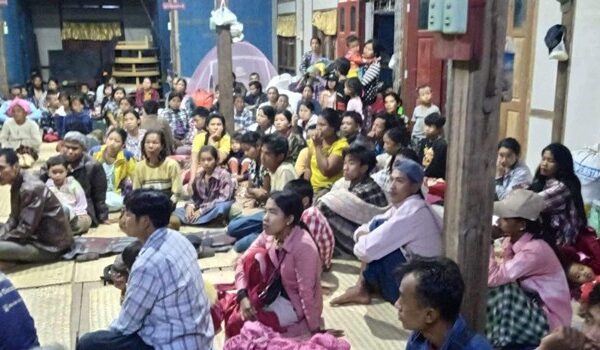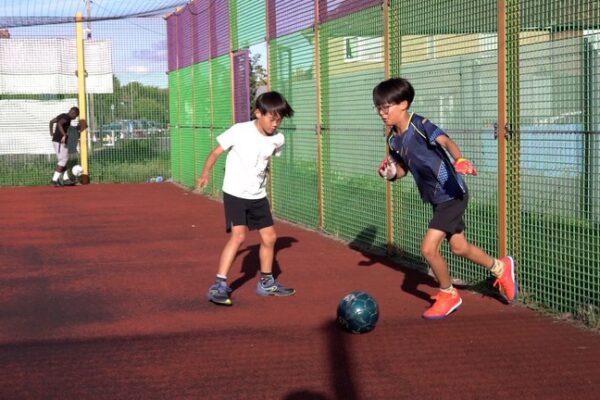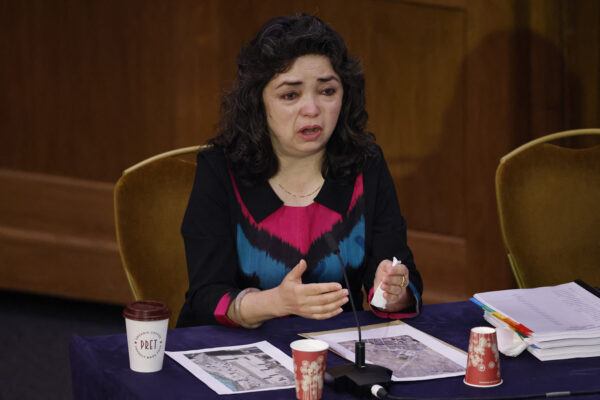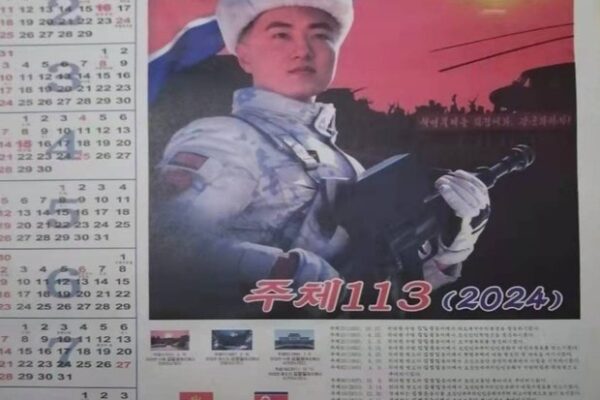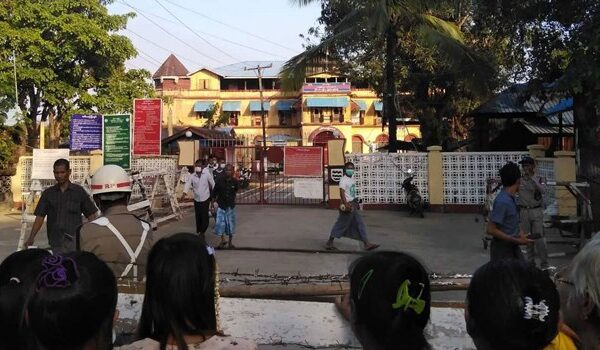
Nearly 3 dozen political prisoners died in Myanmar jails in 2023
Some 34 political prisoners died in military junta’s prisons across Myanmar in 2023, with 18 killed inside jails and 16 others dying due to a lack of medical treatment, a human rights monitoring group said Tuesday. The use of torture against inmates has increased in the wake of the military’s February 2021 coup d’état, with some political prisoners killed after being accused of escape during transfer to other detention centers, according to the Myanmar Political Prisoners Network and the Assistance Association for Political Prisoners. A report issued by the Myanmar Political Prisoners Network on Dec. 31, 2023, based its findings on inmate casualty numbers in Myanmar’s most notorious jails in Pathein, Daik-U, Myingyan, Monywa, Magway, Tharyarwady, Insein and Kalay townships. Thike Tun Oo, a member of the organization’s leading committee, told Radio Free Asia that the ruling junta has stepped up its oppression of political prisoners as it loses ground to resistance forces throughout the country. “While the military council is being defeated in the battles, they have seen prisons as battlegrounds, and they oppressed political prisoners more and more in 2023,” he said. Former rapper San Linn San, a 29-year-old former rapper and singer, was one of the prisoners who died from a lack of proper medical treatment. After the February 2021 coup, he left the entertainment industry to participate in various anti-regime activities, and joined a rebel fighting group. On Sept. 24, 2023, the junta said it arrested San Linn San because he was a member of the anti-regime Black Dragon Force in Pyapon in Ayeyarwady region. He was sentenced to death in October because the group was accused of killing local administers under the junta. He was later transferred to a jail in Pathein. A view of Pathein Prison in Myanmar’s Ayeyarwady region, in an undated photo. (Citizen journalist) San Linn San had to have surgery for a buildup of cerebrospinal fluid deep inside his brain from being tortured at an interrogation center, said Ko Shine, a close family friend. He continued to suffer from the condition while in prison and died there. “When he suffered this serious injury, he was not allowed to go for medical treatments outside the prison,” Ko Shine said. “His head was like a sponge.” Myanmar’s Prisons Act of 1894 stipulates the right of inmates to obtain medical treatment without delay. High fever Cherry Win, a 23-year-old who opposed junta rule and was sentenced to 10 years in prison under the country’s Counter-Terrorism Law, died on Dec. 21, 2023, while suffering from a severe fever because she was not allowed to seek outside medical treatment, according to the sources with knowledge of the situation. The young woman’s house in Demoso township in Kayah state was burned down amid fighting between armed resistance groups by junta forces in mid-2021, forcing her and her family to flee to safety, said a relative who declined to be named for safety reasons. Junta authorities arrested Cherry Win in Yangon just before she planned to go to Singapore for a job, and accused her of having contact with anti-junta People’s Defense Forces. “We did not know about her death immediately,” the relative said. “We got this news from RFA radio about 10 days after her death. It was confusing for us because we did not see her dead body, and [we believed that] the military council might have burned it.” A lawyer told RFA on condition of anonymity that the junta does not inform family members about prisoner deaths, or show their bodies to them, as the authorities are required to do. “No one can say what the law is at present because the military council has ignored laws and regulations,” he said. An official at the Assistance Association for Political Prisoners, a Thailand-based prisoner monitoring group, who was imprisoned by the junta in Myanmar, told RFA on condition of anonymity that he and others were tortured at an interrogation center. “We felt relief once we were in prison, and I believed I would not die in the prison because I was liberated from the torture,” he said. “However, some prisoners were reportedly killed outside the prison.” RFA could not reach officials at Myanmar’s Prison Department for comment. Kyaw Zaw, spokesman for the President’s Office under the shadow National Unity Government, said officials are trying to take legal action against those responsible for the deaths of political prisoners that have occurred during the military regime. As of Tuesday, the junta had arrested nearly 25,800 people and detained over 19,900 since the 2021 coup, according to the Assistance Association for Political Prisoners. Translated by Aung Naing for RFA Burmese. Edited by Roseanne Gerin and Malcolm Foster.

